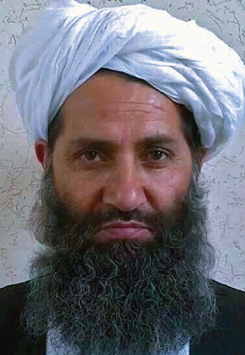Mullah Haibatullah Akhundzada was named the leader of the Taliban in 2016 after a US drone strike killed the previous leader Mullah Akhtar Mohammad Mansour. Akhunzada is known primarily as a religious leader who ran schools from which many of the Taliban have graduated. He is rarely seen in public and there are no confirmed video recordings or photos of him.
Birth: 19 October 2025 (Age: 2025)
Source of Influence: Political
Influence: Leader of the Taliban
School of Thought: Sunni
Status: Featured in current year
Mullah Haibatullah Akhundzada was named the leader of the Taliban in 2016 after a US drone strike killed the previous leader Mullah Akhtar Mohammad Mansour. Akhunzada is known primarily as a religious leader who ran schools from which many of the Taliban have graduated. He is rarely seen in public and there are no confirmed video recordings or photos of him.
Mujahideen and Taliban 1.0: Akhundzada is a former member of the Mujahideen, who fought against the Soviet Union’s invasion during the 1980s. However, during that time, he was known more for his religious guidance rather than military leadership. He continued in the position of religious counsellor during the formation of the Taliban in the 1990s and, after the Taliban captured the western Farah province, he was put in charge of reducing crime in the area. Later on, he took on the position of head of the military court, arbitrating disputes among Taliban members. After the US invasion in 2001, he became both head of the Taliban’s council of religious scholars, and a teacher in a village near the Pakistani border for 15 years..
Taliban 2.0: The Taliban regained power in Afghanistan in August 2021 after the collapse of the US-backed Afghan government, but the new regime remains unrecognised internationally. Western countries have also imposed sanctions and banking restrictions, including freezing $7 billion of Afghan central bank assets. The Taliban have brought security and peace to the country, repaired infrastructure like transport routes and waterworks, and reduced corruption in customs and tax collection. Their strict anti-narcotics campaign has significantly cut opium production. They have also imposed severe restrictions on women’s and girls’ rights, including bans on secondary and university education. Political parties have been banned, and journalists face severe restrictions.
News about Mullah Haibatullah Akhundzada
- No approved news items yet.



